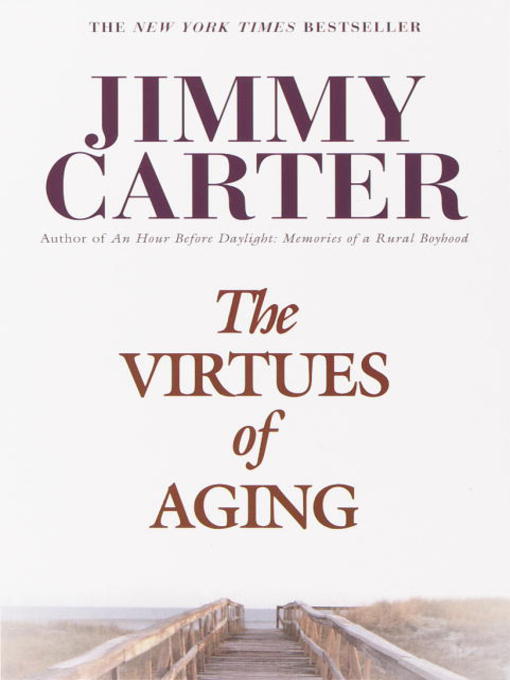
The Virtues of Aging
کتاب های مرتبط
- اطلاعات
- نقد و بررسی
- دیدگاه کاربران
نقد و بررسی

October 12, 1998
When President Carter's 1980 electoral defeat brought involuntary retirement, at age 56, from his position at the White House, he had no set plans for the future. According to this sprightly essay, he and wife Rosalynn, now in their 70s, have continued to lead full, active, productive lives because of their willingness to explore new commitments, their abiding refusal to be mentally dormant. Besides serving at the Carter Center in Atlanta--which they established to help negotiate peace agreements, to monitor elections in emerging democracies and to assist the elderly and mentally ill--the Carters are both university professors, and they roll up their sleeves to build at least one house per year for needy families. Further, claims the former president, they run three miles a day, take 15-mile cross-country bike rides and their sex life is "more complete and enjoyable" than ever. Carter dispenses sage advice on how older people can fashion an interesting and challenging life, strengthen interpersonal relations, maintain good health and face death with equanimity. While most of this counsel is not especially original and occasionally veers toward the platitudinous, he fleshes out his prescriptions with practical tips and pertinent examples of friends, relatives and associates who have remained productive. There are some remarkably intimate moments, as when Carter shares cathartic free verse that enabled him to face his ambivalent relationship with his father, or when he discusses the compromises that contributed to the success of his 52-year marriage. (Oct.) FYI: A volume in the Library of Contemporary Thought series.

October 1, 1998
At age 56, Jimmy Carter "involuntarily retired" when he was defeated for a second term as president by Ronald Reagan in 1980. Despite his achievements in office, Carter and wife Rosalynn faced many of the same challenges confronting other new retirees. The disappointment of Carter's political defeat was complicated by an uncertain financial future for the couple resulting from mismanagement of the family business during Carter's political career, their not having jobs, and the need to care for elderly mothers. In this brief book, Carter sketches how he and Rosalynn created new careers and new lives for themselves--as authors, educators, and senior family members and as a couple growing old together. He adds statistics about the aging population, makes suggestions for healthy living, and defines successful aging. Carter covered much of this same material in his Everything To Gain: Making the Most of the Rest of Your Life (LJ 7/87), coauthored with Rosalynn. Still, at 74, Carter writes as someone who has experienced the "virtues of aging" firsthand, and this work is a thoughtful addition for collections that don't own the previous book.--Karen McNally Bensing, Benjamin Rose Inst. Lib., Cleveland

October 15, 1998
Carter was not a very popular president, but he is a widely respected ex-president. Few Americans recall that in 1980 he was forced into involuntary retirement at the age of 56. Even more than most citizens, Carter and wife Rosalynn had to confront a troubling question: What are we going to do with the rest of our lives? In "The Virtues of Aging," he discusses the decisions they've made and, more generally, the challenges other older Americans can expect to encounter. Carter covers many of the usual topics: health, exercise, grandchildren, making financial decisions, and impending problems of the social security system. But he also describes more personal subjects: the financial crisis the Carters faced shortly after they left the White House; how those two strong personalities have managed to "give each other some space" in their 52 years together; the dozen or so friends and acquaintances whose active lives, well into "old age," encourage the Carters themselves. Likely to circulate where Carter's previous books have been popular. ((Reviewed October 15, 1998))(Reprinted with permission of Booklist, copyright 1998, American Library Association.)

























دیدگاه کاربران